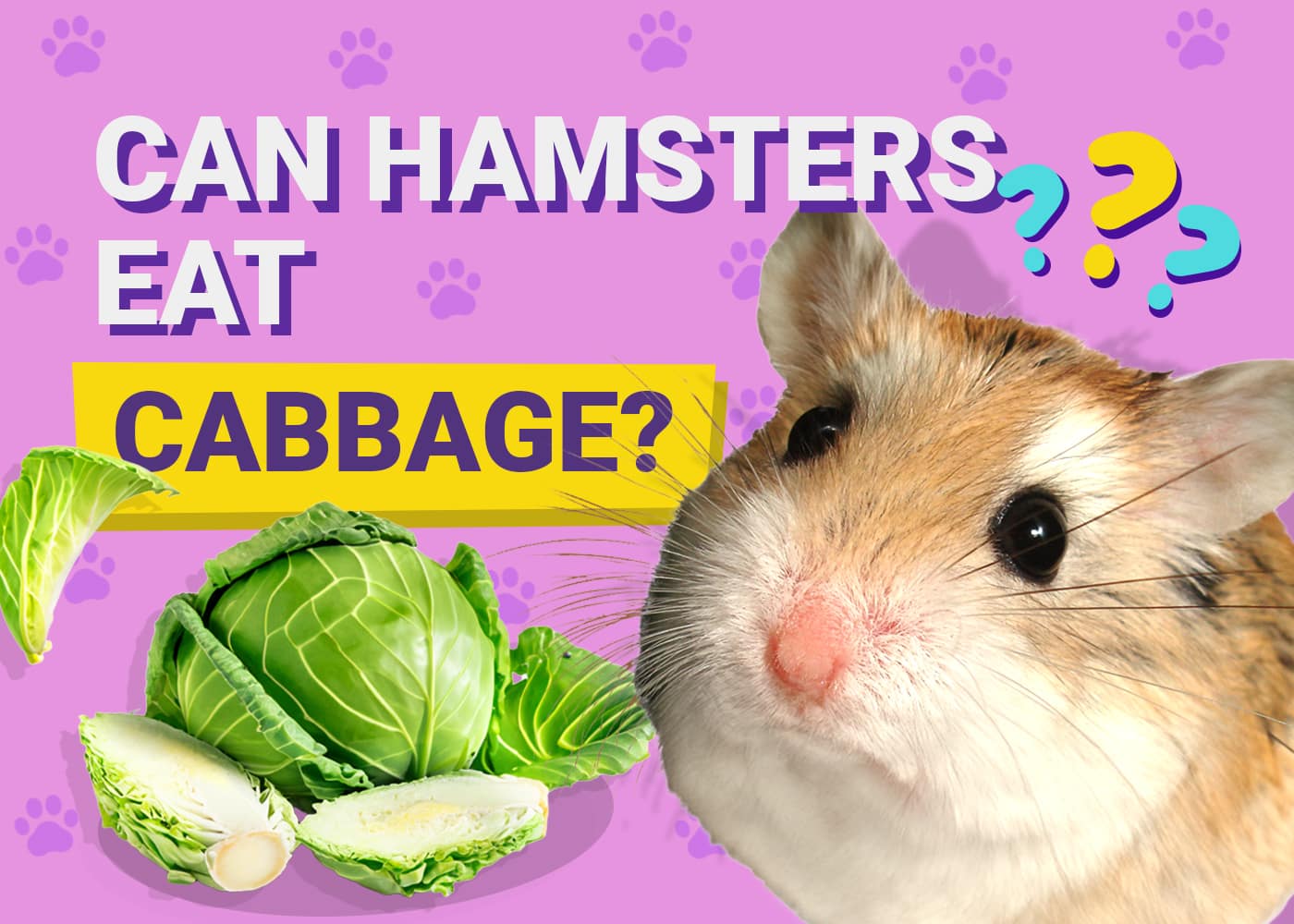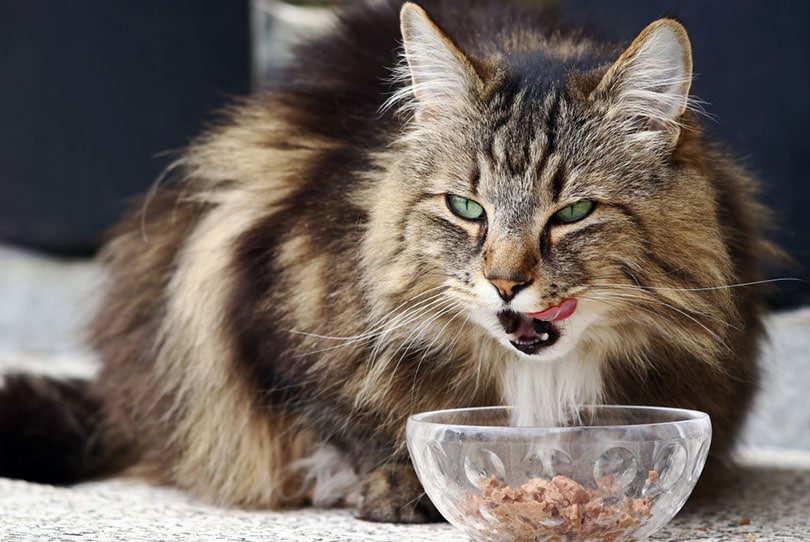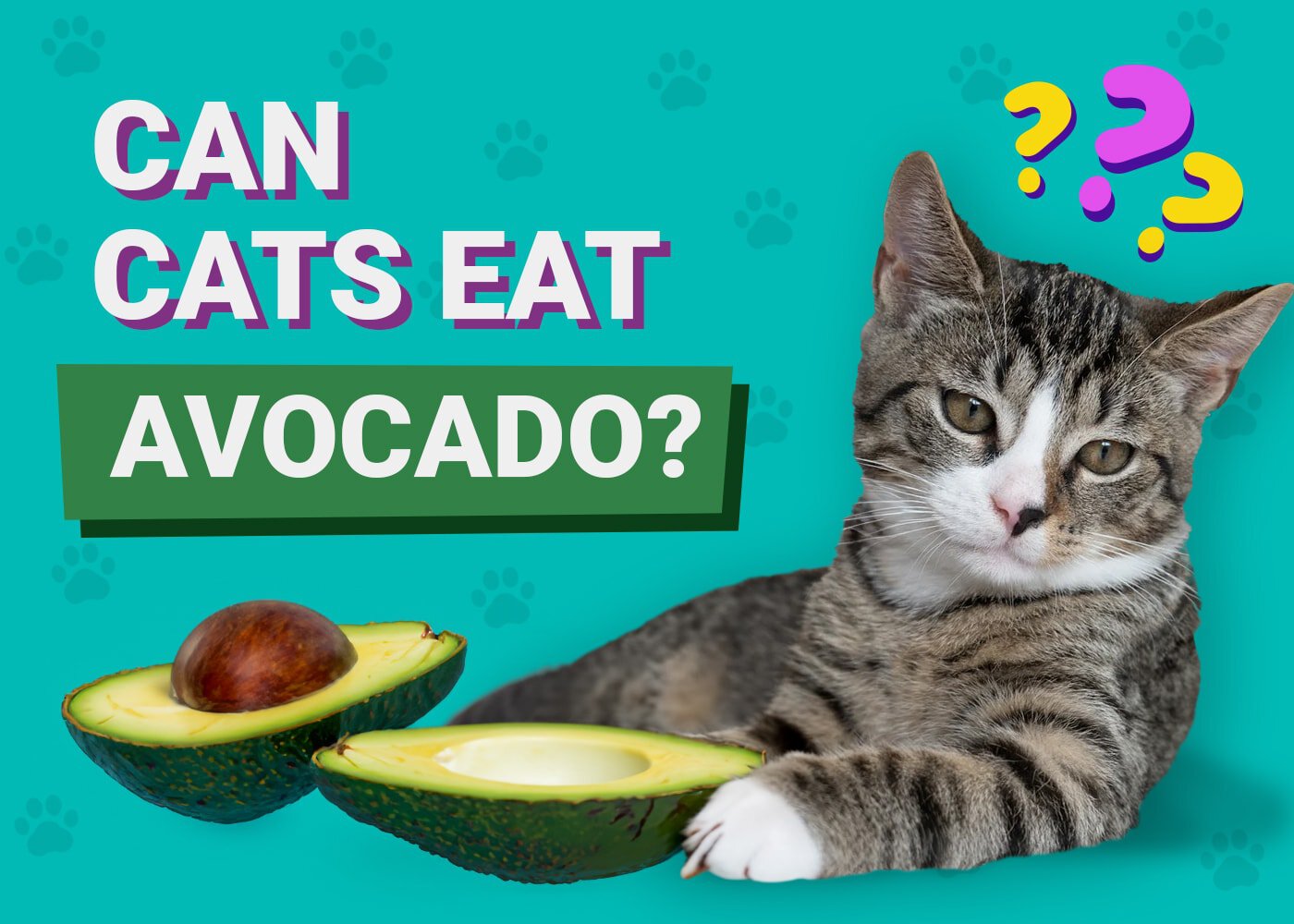VET APPROVED

The information is current and up-to-date in accordance with the latest veterinarian research.
Learn more »Click to Skip Ahead
Hammies are incredibly delicate creatures. As such, it is important to question whether a certain food is good for them before providing it.
When it comes to cabbages, they are not inherently bad for hamsters. In fact, they love eating them. While hamsters are omnivorous, meaning that they can derive nutrition from both plant and animal sources, they mostly eat grains and veggies in the wild.
Therefore, their tummies can handle some cabbage in their diet. However, too much cabbage can be detrimental to them. Here is everything you need to know about hamsters and cabbage.

Should Hamsters Eat Cabbage?
There is a fine difference between can and should. Can means that the hamster is capable of consuming cabbage without any harm coming to them. Should, on the other hand, questions whether doing that would be a good idea. For example, you can eat a Big Mac at night, but should you?
Cabbage is great for these rodents but in small amounts. This is because it is packed with wonderful nutrients such as vitamins C, K, and calcium. It is also a source of fiber and antioxidants.
However, their little stomachs cannot handle too much of this vegetable.
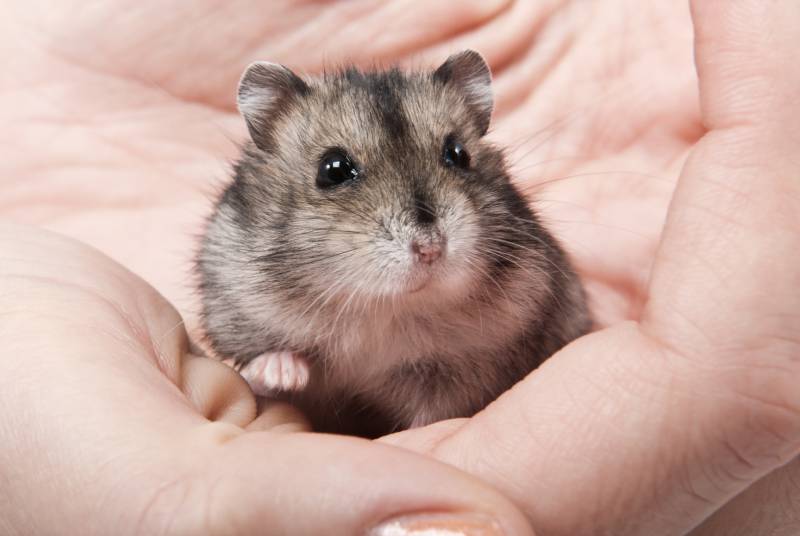
Possible Dangers of Feeding Cabbage to Hamsters
While cabbage is beneficial to hamsters, feeding it to them in excess or regularly is not a good idea for several reasons.
Cabbage contains high levels of calcium. While calcium is vital for bone health, hamsters are not able to process high amounts of this mineral properly, leading to health complications such as kidney stones.
Cabbage also has a high fiber content. Too much fiber in a hamster’s diet can lead to digestive issues, manifesting as stomach aches, bloating, and diarrhea. Moreover, cabbage is a mild diuretic, meaning that it stimulates the hamster’s body to lose water, thus risking dehydration.
You also run the risk of buying cabbage that is not grown organically. Such cabbages typically have all kinds of chemicals, sprays, and artificial ingredients used on them to encourage growth. As you can imagine, your little one is not equipped to handle such toxic substances. Therefore, make sure that all fruits and vegetables you feed your pet are organic.
What Is the Appropriate Amount of Cabbage to Feed a Hamster?
When introducing new food to a hamster, you must be extremely cautious, as their digestive systems are ultra-sensitive. The rule of thumb is to start with tiny pieces. In the case of cabbage. It’s best to start with a very small piece, about the size of your hamster’s nail. Feed it to your pet, and then wait for 24 hours to see whether they will have any adverse reaction to the vegetable.
If all is good, you can gradually increase the size to a full small leaf. However, you must cut it up to prevent the risk of choking. You can experiment with various ways of feeding cabbage to the rodent. For example, you could put the leaf in a grinder so you can get tiny pieces, you can make cabbage juice, or even mix it with other appropriate fruits and vegetables to make a salad.
Do not offer cabbage to a hamster more than two times in a single week.
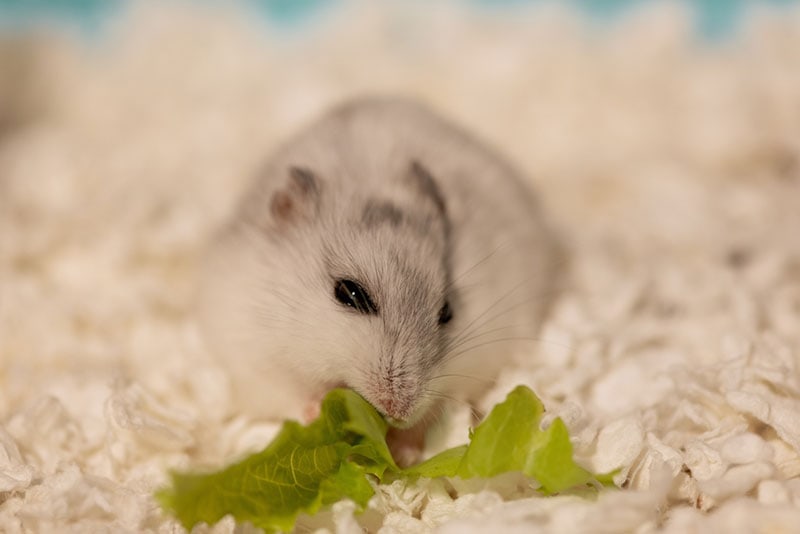

Benefits of Cabbage for Hamsters
In appropriate amounts, cabbage is remarkably beneficial to these animals. Just by eating it raw, hamsters get to take care of their dental health. Additionally, in moderation, the calcium in cabbage promotes better bone and teeth health.
As mentioned, cabbage is also rich in dietary fiber. This is useful in the digestive system, as it promotes healthy bowel movements, thus preventing issues such as constipation and diarrhea.
This vegetable also contains decent levels of phosphorus and potassium. Phosphorus is a vital nutrient that promotes energy storage, in addition to helping in the repair and maintenance of cells and tissues in the body.
However, the main benefits of cabbage for hamsters come from its high levels of vitamin K.
Vitamin K
Vitamin K plays a host of crucial roles in a hamster’s body. It enhances reproductive health, is responsible for bone metabolism, regulates levels of blood calcium, and prevents excessive bleeding in case of an injury by promoting the blood clotting process.
Vitamin C
Vitamin C, on the other hand, is arguably one of the most important vitamins we have. While it is known for roles such as maintaining bone and teeth health, promoting the formation of cartilage and collagen. While hamsters can synthesize their own vitamin C (unlike guinea pigs), they can still benefit from dietary sources, particularly during illness, stress, pregnancy, or recovery.
Vitamin C acts as an antioxidant. Antioxidants are compounds that prevent cell damage by neutralizing free radicals. Free radicals, on the other hand, are highly unstable compounds that steal electrons from the cells in the body to attain stability. When that happens, they change the cell structure, thus causing mutations such as cancers. They also contribute to faster aging, heart disease, and arthritis.
Unfortunately, free radicals are everywhere, thanks to pollution. Therefore, to keep their detrimental effects at bay, ensure that your furry friend gets a healthy dose of vitamin C from their diet.
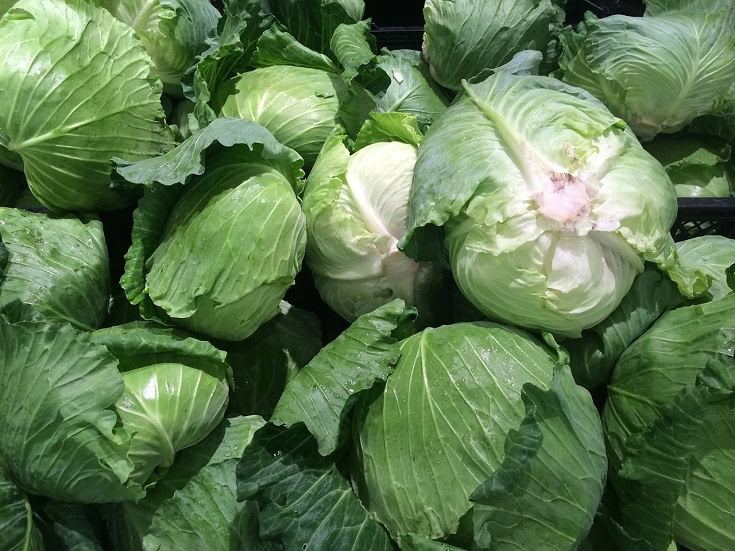

Final Thoughts
So, can hamsters have cabbage? Yes, your furball can have cabbage, but in small quantities. It is especially important to start with tiny amounts and observe their body’s response before gradually increasing the amount offered a bit. While cabbage is not toxic to hamsters, eating too much of it can result in a host of gastrointestinal issues because their stomachs are sensitive. Your hamster’s main diet should consist of species-appropriate pellets. Therefore, consider feeding cabbage to your hamster as a supplement instead of an actual meal.
If you’re looking for other foods to add to your hamster’s diet, check out some of our other food guides below:
